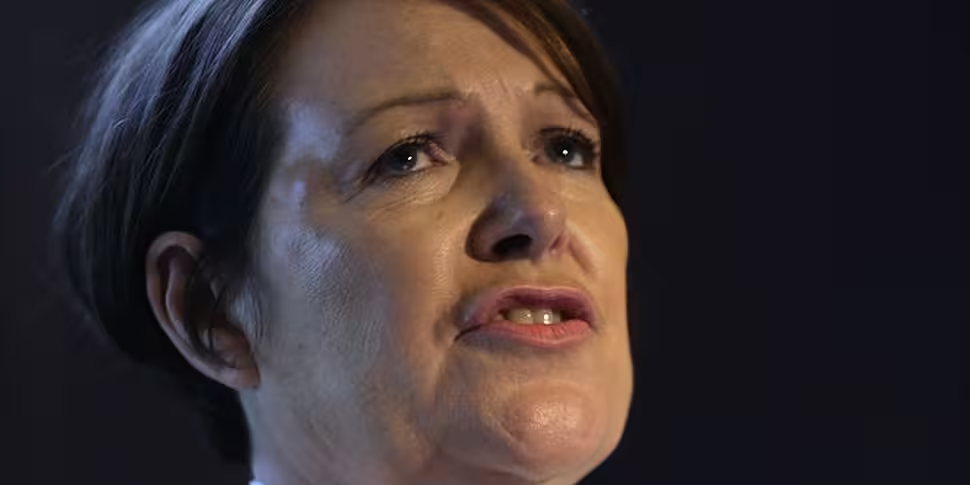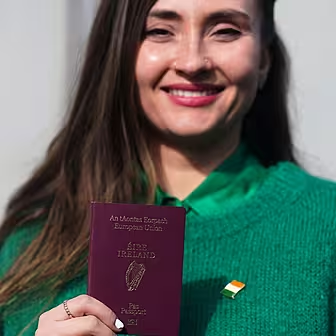Garda Commissioner Nóirín O'Sullivan has denied any knowledge or involvement in an alleged campaign against a whistleblower in the force.
Taoiseach Enda Kenny earlier indicated that a judge could be appointed to examine the new claims by garda whistleblowers.
Mr Kenny confirmed yesterday that Tánaiste Frances Fitzgerald recently received correspondence from a number of gardaí under whistleblowing legislation.
It followed an Irish Examiner report that statements made by two senior gardaí alleged that senior garda management set out to destroy the character of a whistleblower.
The paper said the disclosures detailed attempts to undermine the whistleblower by encouraging officers to attack his character, creating an intelligence file on him and monitoring his activities on the garda Pulse system.
The Fine Gael leader told TDs he had "absolute confidence" in Garda Commissioner Nóirín O'Sullivan, following calls for her resignation by TD Clare Daly.
Enda Kenny told the Dáil this afternoon that it will be up to Minister Fitzgerald to decide on the best course of action to take once the documentation has been fully considered.
"That may well be the appointment of a sitting judge to look at the documentation to verify the contents of that and whatever action follows from that," he said.
A statement from the gardaí this afternoon said: "Commissioner O’Sullivan would like to make it clear that she was not privy to nor approved of any action designed to target any garda employee who may have made a protected disclosure and would condemn any such action.
"The Commissioner wishes to [reiterate] that any employees in An Garda Síochána who bring forward any concerns or issues they might have will be taken seriously and the matters examined."
The statement added that gardaí were "anxious that the full content of the disclosures giving rise to the commentary be comprehensively examined" to maintain public confidence in the force.
Minister Fitzgerald told an Oireachtas committee this morning that she will ensure the claims are fully investigated.
"I will consider in great detail how to respond to them, and what is the best possible way to take this further, to analyse and make sure there is a process in place," she said.
"I will certainly do it in a way that protects the whistleblowers and that is fair, and is seen to deliver justice to all."
Garda culture
Speaking to Newstalk Drive, Mary Lou McDonald said it is "scandalous that we now have another - and very serious - set of allegations in respect of whistleblowers and the smearing and targeting of them."
She suggested there seems to be a lot of "book-passing" over the issue.
"Let's hear from the [Justice] Minister. I know the Commissioner has made a public statement - we need much more than that.
"As I speak to you today, I would suggest that the position of both those women in the senior positions concerned is very, very tenuous to say the least of it," Deputy McDonald added.
Earlier today, Brendan Howlin sharply criticised what he described as a culture of "circling the wagons" within An Garda Síochána.
In an interview with Newstalk Breakfast, Deputy Howlin said the development was "very demoralising" for those who believed the Protected Disclosures Act 2014 would improve the culture within the force.
"I said during the passage of that bill that the law is not enough. You have to change culture and this is much more difficult," he said.
"It was clear to me then and it seems still to be the position that, for some guards, there seems to be a culture where when someone points to a wrongdoing, you circle the wagons.
"You don’t address it. That needs to be eradicated and we need to do it now."
The Labour leader described Minister Fitzgerald as eager, determined and "honourable in what she wants to do".
He added, however: "I know that anyone - and this is every minister I am aware of in my 30 years in the Dáil - that goes into Department of Justice is sucked into a system.
"One of things I tried to do in the Department of Public Expenditure is move people around so you didn't build up silos of people who become securocrats in a way that protects their own enclave above the generality of the public good."









